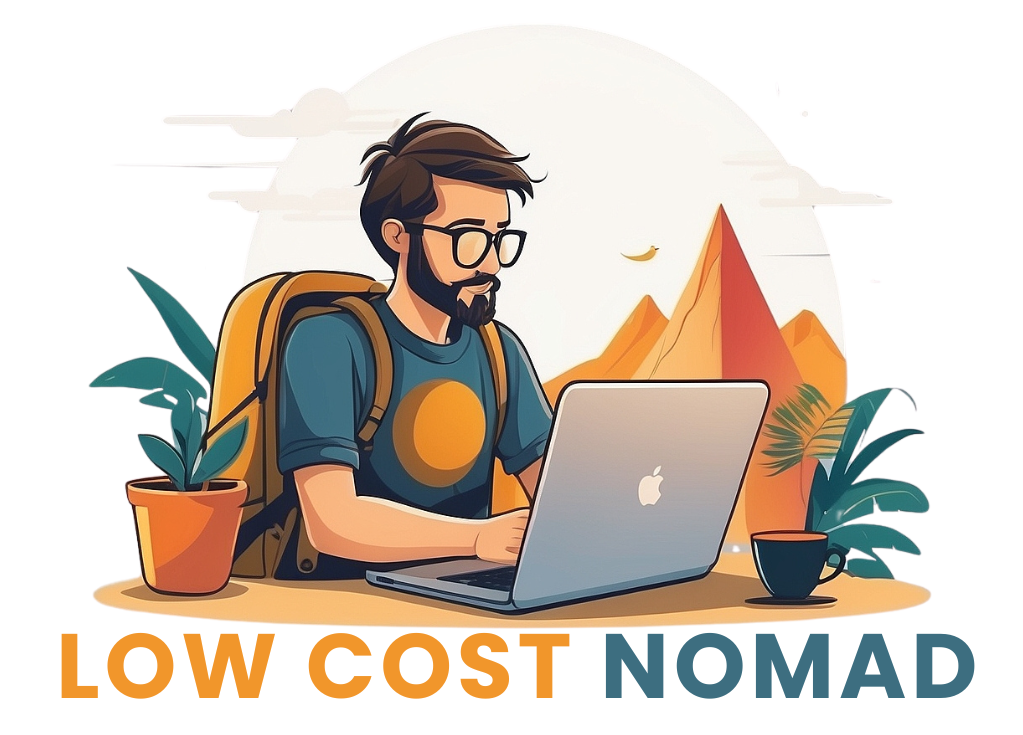The Cheapest Digital Nomad Hubs with Fast Internet in 2025
Imagine this: you’re sitting by a beach or in a lively city square, the sun is shining, and you’re getting your work done easily, all while spending less money than you would at home. That’s the dream of being a digital nomad! More and more people are choosing this way of life, working online from anywhere in the world.
But two big questions always pop up: Where can I go that’s affordable? And will I have reliable, fast internet to actually do my job? Finding a place that offers both can feel tricky.
The good news is that in 2025, there are still many places around the globe that offer a low cost of living *and* have surprisingly good internet connections. This article is all about exploring some of the cheapest digital nomad hubs with fast internet that you should consider for your adventures in 2025. We’ll look at different places, see what they offer, and help you figure out if one of them could be your next temporary home.
Why Cost and Internet Speed Matter for Digital Nomads
Before we dive into specific locations, let’s quickly talk about *why* being cheap and having fast internet are so important for people working remotely from abroad. It seems obvious, but there’s a bit more to it.
Cost of Living: Saving Money While You Explore
For many digital nomads, the ability to work from anywhere isn’t just about travel; it’s also about finances. Living in a place with a lower cost of living means your money goes further. This can mean:
- You don’t have to work as many hours to cover your basic needs.
- You can save money for future goals, like buying a home or investing.
- You have more flexibility to try new experiences, eat out more often, or take weekend trips.
- It makes the digital nomad lifestyle accessible to people who might not have a huge income.
When we talk about cost of living, we mean everything from rent for an apartment or room, to the price of groceries, eating at restaurants, local transportation, and even how much entertainment or going out costs.
Fast Internet: Your Connection to Work and the World
If you work online, reliable and fast internet isn’t a luxury; it’s a necessity. Your job probably depends on it. Think about:
- Video Calls: Jittery, freezing calls are frustrating for everyone and make you look unprofessional.
- Uploading/Downloading: Sending large files, downloading software, or working with cloud storage requires speed.
- Communication: Staying in touch with clients, colleagues, and family needs a stable connection.
- Research and Learning: Quick access to information makes your work easier and helps you learn new things.
- Entertainment and Connection: Streaming movies, using social media, and keeping up with news from home also rely on good internet.
Slow or unreliable internet can cause stress, missed deadlines, and make the whole experience much less enjoyable. So, a place being cheap isn’t enough; it *must* have the infrastructure to support online work.
How We Pick Potential Cheapest Digital Nomad Hubs with Fast Internet
Finding the cheapest digital nomad hubs with fast internet for 2025 requires looking at several factors. It’s not just about the lowest price tag; it’s about getting good value for your money, especially regarding that crucial internet connection.
Here are some things to consider:
- Overall Cost of Living: How much does it *really* cost to live comfortably for a month? This includes rent, food, transport, utilities (including internet), and some fun money.
- Internet Speed and Reliability: Is fast Fibre optic internet available? What are typical download and upload speeds? Is the connection stable, or are there frequent outages? What does unlimited data cost for your phone?
- Availability of Coworking Spaces and Cafes: Are there places outside your home where you can work with reliable WiFi? What do they cost?
- Nomad Community: Is there a community of other remote workers? This can make adjusting easier and provide networking opportunities.
- Safety and Stability: Do you feel safe walking around? Is the political situation stable?
- Visa Requirements: How easy is it to enter and stay for a few months? (Note: Visa rules can change, especially by 2025, but we can look at current trends).
- Lifestyle and Culture: Are there things to do? Is it easy to get around? Do you like the general vibe?
Based on these factors, and looking at places that have consistently offered value and improving infrastructure, let’s explore some strong contenders for the cheapest digital nomad hubs with fast internet in 2025.
Spotlight: Potential Cheapest Digital Nomad Hubs with Fast Internet in 2025
Here are a few places that frequently come up when digital nomads look for affordable living combined with good connectivity. Remember that costs and internet quality can vary even within a city, and things can change, but these spots are generally known for offering a good balance.
Chiang Mai, Thailand
Chiang Mai in northern Thailand is often called one of the original digital nomad hubs, and for good reason. It’s been popular for over a decade and continues to be a strong candidate for the cheapest digital nomad hubs with fast internet.
Cost of Living in Chiang Mai:
- Rent: You can find a decent studio or one-bedroom apartment for anywhere from $200 to $500 USD per month, depending on how modern it is and its location. Rooms in shared houses are even cheaper.
- Food: Thailand is famous for delicious and cheap street food. You can easily eat a meal for $1-3. Eating in restaurants is also affordable, maybe $5-10 per meal. Groceries are reasonably priced if you prefer to cook.
- Transport: Getting around is cheap. Red trucks (songthaews) act like shared taxis for less than a dollar per ride in the city. Scooter rental is popular and inexpensive (around $60-100 per month).
- Overall: Many nomads report living comfortably in Chiang Mai on $800 – $1200 USD per month, covering all expenses. This makes it very attractive compared to Western costs.
Internet Situation in Chiang Mai:
- Speed: Internet infrastructure has improved massively over the years. Fibre optic internet is widely available in apartments and coworking spaces, offering speeds that can easily reach 100 Mbps or much higher (even into the gigabits in some packages).
- Reliability: Generally reliable, although occasional short outages can happen anywhere. Most places catering to nomads understand the need for stable internet.
- Availability: Fast WiFi is common in apartments, cafes, restaurants, and numerous coworking spaces.
- Mobile Data: SIM cards are easy to get, and data packages are very affordable, providing a good backup or primary connection.
Nomad Scene & Lifestyle:
- Chiang Mai has a huge, established digital nomad community. This means lots of networking events, meetups, and resources for remote workers.
- There are countless cafes with good WiFi and many dedicated coworking spaces for different budgets and work styles.
- The city is culturally rich, with ancient temples, vibrant markets, and beautiful nature nearby. It’s relatively safe and easy to navigate.
Pros: Very affordable, great food, large and active nomad community, abundant coworking spaces, increasingly fast and reliable internet, rich culture.
Cons: Can be very hot, air quality issues during burning season (usually Feb-Apr), visa runs might be necessary depending on your nationality and length of stay.
Tbilisi, Georgia
Georgia has quickly become a hotspot for digital nomads, and its capital, Tbilisi, is leading the way. It offers a fascinating mix of European and Asian cultures, stunning architecture, and a welcoming atmosphere, making it a strong contender for the cheapest digital nomad hubs with fast internet.
Cost of Living in Tbilisi:
- Rent: An apartment in the city center can range from $300 to $600 USD per month. Outside the main tourist areas, you can find places for even less.
- Food: Georgian food is delicious and very affordable. Eating out at a local restaurant is cheap ($5-10 per meal). Groceries are also inexpensive.
- Transport: The metro and buses are very cheap. Taxis (using apps like Bolt) are also inexpensive compared to many other countries.
- Overall: Many nomads live comfortably on $800 – $1300 USD per month in Tbilisi.
Internet Situation in Tbilisi:
- Speed: Georgia boasts some surprisingly fast and affordable internet. Fibre optic is common, especially in urban areas, with speeds often exceeding 50 Mbps and readily available higher speeds.
- Reliability: Generally reliable, though like anywhere, occasional technical issues can occur.
- Availability: Good WiFi is standard in apartments and cafes. Coworking spaces are plentiful and often have excellent connections.
- Mobile Data: SIM cards and data plans are cheap and offer good coverage.
Nomad Scene & Lifestyle:
- Tbilisi has a rapidly growing nomad community. There are many events, Facebook groups, and coworking spaces popping up.
- Georgia has a very generous visa policy for many nationalities, often allowing stays of up to a year, which is a huge plus for nomads.
- The city is vibrant, with historic streets, sulfur baths, great wine, and beautiful nature within easy reach. It feels relatively safe.
Pros: Very affordable, excellent and cheap internet, easy long-term visa (for many), growing nomad community, unique culture and food, safe.
Cons: Language barrier (though English is becoming more common in tourist areas and among younger people), infrastructure outside major cities can be less developed.
Medellín, Colombia
Once known for its past, Medellín has transformed into a popular and vibrant city often called the “City of Eternal Spring” due to its climate. It’s become a major Latin American hub for remote workers, offering a good balance of affordability and improving infrastructure, making it a strong candidate for the cheapest digital nomad hubs with fast internet.
Cost of Living in Medellín:
- Rent: Rent varies a lot by neighborhood. In popular nomad areas like El Poblado (more expensive) or Laureles (popular and more local vibe), a decent apartment might cost $400-$800 USD per month. You can find cheaper options further out.
- Food: Local food is quite cheap. Eating out at local “Menu del Dia” spots is very affordable ($3-5 for lunch). Groceries are also reasonably priced.
- Transport: The metro system is clean and efficient. Taxis and ride-sharing apps are also inexpensive.
- Overall: A comfortable monthly budget for Medellín is often between $1000 and $1600 USD, depending heavily on accommodation choice and lifestyle. It’s more expensive than Chiang Mai or Tbilisi but still much cheaper than North America or Western Europe.
Internet Situation in Medellín:
- Speed: Internet quality has significantly improved. Fibre optic is available in many apartments and coworking spaces, offering speeds suitable for remote work (often 50+ Mbps).
- Reliability: Generally reliable, but outages can happen, especially during heavy rainstorms. Having a backup plan (like mobile data) is wise.
- Availability: Good WiFi is common in apartments and cafes. Medellín has a growing number of coworking spaces.
- Mobile Data: SIM cards are easily available, and data plans are affordable, offering good 4G/5G coverage in the city.
Nomad Scene & Lifestyle:
- Medellín has a large and active digital nomad community, with lots of meetups and social events.
- The city has a lively nightlife, great restaurants, and beautiful views. There are lots of opportunities for learning Spanish and experiencing Colombian culture.
- Safety has improved but requires awareness, especially in certain areas or at night.
Pros: Beautiful city, great climate, vibrant culture, active nomad community, improving internet, affordable (especially compared to many Western cities).
Cons: Safety requires caution, language barrier (less English spoken than in parts of Asia/Europe), some neighborhoods are noisy.
Budapest, Hungary
Budapest, the capital of Hungary, offers a beautiful European experience without the high price tag of Western European cities. Its grand architecture, thermal baths, and ruin bars make it a unique place to live, and it ranks well for the cheapest digital nomad hubs with fast internet in Europe.
Cost of Living in Budapest:
- Rent: Rent for an apartment in the city center can range from $400 to $700 USD per month. Further from the center, you can find places for $300-$500.
- Food: Eating out can be relatively inexpensive, especially at local spots ($5-10 per meal). Groceries are also affordable.
- Transport: Budapest has an excellent and cheap public transport system (metro, trams, buses).
- Overall: A comfortable budget for Budapest is often between $1000 and $1500 USD per month.
Internet Situation in Budapest:
- Speed: Hungary has some of the best internet infrastructure in Europe. Fast Fibre optic internet is widely available and affordable, with speeds often exceeding 100 Mbps.
- Reliability: Very reliable, outages are uncommon.
- Availability: Fast WiFi is standard in apartments, cafes, and numerous coworking spaces.
- Mobile Data: SIM cards and data packages are affordable and offer excellent coverage.
Nomad Scene & Lifestyle:
- Budapest has a significant digital nomad community, benefiting from its central European location and affordability.
- There are plenty of cafes and coworking spaces catering to remote workers.
- The city is beautiful, with lots of history, culture, and nightlife. It’s also a great base for exploring other parts of Europe.
Pros: Affordable for Europe, excellent and reliable internet, beautiful city, rich history and culture, good public transport, central location in Europe.
Cons: Can get cold in winter, bureaucracy can sometimes be challenging, language is difficult (though English is common in tourist areas). Visa rules for staying long-term in the Schengen Area can be complex depending on your passport.
Belgrade, Serbia
Belgrade, the capital of Serbia, is a dynamic city at the crossroads of the Balkans and Central Europe. It’s known for its vibrant nightlife, friendly people, and increasingly as an affordable place for digital nomads, making it another strong contender for the cheapest digital nomad hubs with fast internet.
Cost of Living in Belgrade:
- Rent: Rent for a good apartment in the city center or desirable neighborhoods can range from $350 to $600 USD per month. Cheaper options are available slightly further out.
- Food: Eating out at local kafanas (traditional restaurants) is very affordable ($5-10 per meal). Groceries are also reasonably priced.
- Transport: Public transport is cheap. Taxis using apps are also inexpensive.
- Overall: A comfortable monthly budget for Belgrade is often between $900 and $1400 USD.
Internet Situation in Belgrade:
- Speed: Internet speeds in Belgrade are generally very good, especially with Fibre optic becoming more common. Speeds of 50+ Mbps are widely available in apartments and coworking spaces.
- Reliability: Generally reliable.
- Availability: Good WiFi is common in apartments, cafes, and coworking spaces.
- Mobile Data: SIM cards are cheap, and data plans are affordable, with good coverage in the city.
Nomad Scene & Lifestyle:
- Belgrade has a growing digital nomad community, attracted by its affordability and lively atmosphere.
- There are a good number of cafes and coworking spaces.
- Belgrade is known for its excellent nightlife, numerous cafes along the rivers, and friendly locals. It’s a gritty but charming city with a lot of character.
Pros: Very affordable, good internet, lively nightlife, friendly locals, growing nomad scene, interesting culture.
Cons: Can be less polished than Western European cities, air quality can be an issue in winter, not part of the Schengen Area (can be a pro for visa strategies, but means separate travel). Visa rules vary by nationality.
Lisbon/Porto, Portugal (A Note on Affordability)
Portugal, particularly Lisbon and Porto, became incredibly popular digital nomad destinations partly due to their Digital Nomad Visa and great lifestyle. However, this popularity has driven up costs significantly in recent years. While they offer fantastic internet and quality of life, they are increasingly moving out of the “cheapest” category compared to the other places on this list.
Cost of Living in Lisbon/Porto (Comparatively):
- Rent: This is where costs have risen dramatically. A decent apartment in Lisbon or Porto can easily cost $800 – $1500+ USD per month or even more in popular areas. Finding truly cheap accommodation is becoming very difficult.
- Food: Eating out can still be reasonable, especially at local tavernas, but overall food costs are higher than the other cities mentioned.
- Overall: A comfortable budget in Lisbon or Porto is now likely $1800 – $2500+ USD per month, putting them in a different price bracket than the truly cheapest options.
Internet Situation in Lisbon/Porto:
- Speed: Portugal has excellent internet infrastructure. Fibre optic is widespread, offering very fast and reliable speeds (100+ Mbps is common).
- Reliability: Very reliable.
- Availability: Fast WiFi is standard. Plenty of coworking spaces and cafes.
Pros: Great internet, beautiful cities, good lifestyle, mild climate, large nomad community, specific nomad visa options, safe.
Cons: No longer truly cheap, rising cost of living (especially rent), very popular which means it can feel crowded or less “local”.
We include Portugal here to show that while it has fantastic internet and a nomad scene, it highlights that some popular places become less affordable as their popularity grows. When searching for the cheapest digital nomad hubs with fast internet for 2025, it’s important to look beyond the most hyped locations.
Finding Your Own Cheap Hub with Fast Internet
The cities listed above are just a few examples of places that balance affordability with good internet. The “cheapest” place for you will depend on your lifestyle, spending habits, and income. Here are a few tips for finding your ideal spot in 2025:
- Do Your Research (for 2025!): Costs and internet speeds can change. Look for recent blog posts, forums, and community groups specific to digital nomads in the places you’re considering. Search for “[City Name] cost of living 2025” and “[City Name] internet speed”.
- Check Specific Neighborhoods: Prices and internet quality can vary a lot even within the same city. Living slightly outside the most popular tourist or nomad areas can significantly lower costs without sacrificing too much internet speed.
- Look Beyond the Capitals: While capitals often have the best infrastructure, smaller cities or towns in affordable countries might also have good internet and an even lower cost of living. Think about places like Da Nang (Vietnam), Novi Sad (Serbia), or smaller towns in Portugal or Spain (though internet can be less reliable outside major cities).
- Verify Internet Before You Commit: If possible, ask about internet speed and reliability *before* booking long-term accommodation. Websites like Speedtest.net have city rankings, but checking with people actually living there is best. Ask landlords or hosts for a speed test screenshot.
- Consider Mobile Data as a Backup: In many of the cheapest digital nomad hubs with fast internet, mobile data is very affordable. Having a reliable data plan on your phone can be a great backup if your home internet goes down or you need to work from a place without WiFi.
- Your Lifestyle Matters: Do you plan to eat out every meal or cook? Do you need a fancy apartment or is a simple room okay? Do you go out every night or prefer quiet evenings? Your personal choices will heavily influence how “cheap” a place feels.
Conclusion: Your Affordable Online Workplace Awaits in 2025
As we look ahead to 2025, the dream of being a digital nomad working from an exotic or exciting location remains very achievable, even if you’re on a budget. You don’t have to choose between affordability and the crucial need for fast, reliable internet.
As this article has shown, places like Chiang Mai, Tbilisi, Medellín, Budapest, and Belgrade continue to offer excellent value for money while providing the necessary digital infrastructure. While popular spots like Lisbon or Porto might become less “cheap,” they paved the way and showed that the demand for such places is high, encouraging development in other areas.
Finding the cheapest digital nomad hubs with fast internet is an ongoing process of research and discovery. Prices fluctuate, internet speeds improve (or occasionally worsen), and new hidden gems emerge.
The key takeaway is that the perfect blend of low cost and high connectivity is out there. By doing your homework, considering your own needs, and being open to different cultures and locations, you can absolutely find a place in 2025 where you can live comfortably, work effectively online, and enjoy the incredible freedom that the digital nomad lifestyle offers. So, start exploring your options and get ready for your next adventure!




